When one thinks of sexual harassment at work, the visual that comes to mind is a boss or co-worker being the offender. However, a customer or client may be the person treating the worker improperly. Depending on the situation, reporting such issues to management may be even more difficult than reporting on a supervisor or co-worker.
The worker may not want to ‘lose the sale’ or ‘upset the important client.’ The employee may also simply endure or ignore the harassment by a client or customer because it is deemed to be ‘part of the job.’
The #metoo movement has brought to light workplace harassment where the offender is not a supervisor. For example, an article in the New York Times examined the issues that servers face in complaining about harassing customers. In part, the servers were concerned that complaints would impact their tips. Also, the harassment was often viewed as ‘part of the job’. This puts pressure on these workers to ignore and endure this mistreatment.
As to the question of whether or not the employer can be held liable, the U.S. Supreme Court has not yet directly addressed this issue, but most federal courts have ruled that
an employer can be held liable for the sexual harassment of its employees by customers when the employer knows or should have known of the harassment and fails to take action to prevent or address the matter.
One memorable and prominent case where a customer was the harasser is
Lockard v. Pizza Hut, Inc., 162 F.3d 1062 (10th Cir. 1998). This case involved a female waitress at a Pizza Hut franchise in Oklahoma. Since Ms. Lockard earned $2.35/hour, she was dependent on tips from customers. One night, Ms. Lockard served two customers who made sexually offensive comments to her and, also, grabbed her hair. Ms. Lockard immediately informed her supervisor of the customers’ harassing conduct, but her supervisor replied, “You were hired to be a waitress. You waitress.” When Ms. Lockard returned to the table, she was then groped. She immediately quit.
The federal appellate court that heard the case affirmed the restaurant’s liability for the sexual harassment. The court noted that that Ms. Lockard’s supervisor ordered her to continue serving the sexually-aggressive customers and, as such, put her in “an abusive and potentially dangerous situation, although he clearly had both the means and the authority to avoid doing so by directing a male waiter to serve these men, waiting on them himself, or asking them to leave the restaurant.” The court confirmed that Pizza Hut was liable for the supervisor’s failure to protect its employee.
Further defining an employer’s responsibility to address sexual harassment by the employer’s customers or clients, Title 29 of the Code of Federal Regulations provides that an employer may be “responsible for the acts of non-employees, with respect to sexual harassment of employees in the workplace, where the employer (or its agents or supervisory employees) knows or should have known of the conduct and fails to take immediate and appropriate corrective action.” 29 C.F.R. § 1604.11(e).
An interesting departure from the federal standard covered above is that the anti-harassment provisions of the California Fair Employment and Housing Act (FEHA)
do not make employer liable for sexual harassment of employees committed by clients or customers. In
Salazar v Diversified Paratransit, Inc. (2002) 103 CA4th 131, 126 CR2d 475, the Second District Court of Appeal held (2-1) that the California Fair Employment and Housing Act (FEHA) (Govt C §§ 12900–12996)
does not create employer liability when a nonemployee client or customer sexually harasses an employee. See Govt C § 12940(j)(1), (k). It was held that neither the statutory language nor the legislative history support holding employers liable for sexual harassment by clients or customers. Presiding Justice Klein’s dissent to the majority’s ruling stated that this was “a narrow interpretation leading to absurd results,” and argued that the legislature did intend to hold employers liable for harassment by “clientele” if the employer had knowledge of the harassment and failed to take necessary steps to prevent it. Even the majority in
Salazar stated in its decision that an employee who is sexually harassed by a customer or client is not left without legal remedies. The employee still has the right to sue based on nonstatutory causes of action and can bring a civil action for tort and injunctive relief. For example, if the harassment constitutes sexual battery, the employee may sue in tort for damages and seek equitable relief under CC § 1708.5.
By: Steven E. Alfieris, Esq.
 For the general public
For the general public: This Blog/Web Site is made available by the law firm publisher, Dias Law Firm, Inc., for educational purposes. It provides general information and a general understanding of the law, but does not provide specific legal advice. By using this site, commenting on posts, or sending inquiries through the site or contact email, you confirm that there is no attorney-client relationship between you and the Blog/Web Site publisher. The Blog/Web Site should not be used as a substitute for competent legal advice from a licensed attorney in your jurisdiction.
For attorneys: This Blog/Web Site is informational in nature and is not a substitute for legal research or a consultation on specific matters pertaining to your clients. Due to the dynamic nature of legal doctrines, what might be accurate one day may be inaccurate the next. As such, the contents of this blog must not be relied upon as a basis for arguments to a court or for your advice to clients without, again, further research or a consultation with our professionals.

 When one thinks of sexual harassment at work, the visual that comes to mind is a boss or co-worker being the offender. However, a customer or client may be the person treating the worker improperly. Depending on the situation, reporting such issues to management may be even more difficult than reporting on a supervisor or co-worker.
The worker may not want to ‘lose the sale’ or ‘upset the important client.’ The employee may also simply endure or ignore the harassment by a client or customer because it is deemed to be ‘part of the job.’
The #metoo movement has brought to light workplace harassment where the offender is not a supervisor. For example, an article in the New York Times examined the issues that servers face in complaining about harassing customers. In part, the servers were concerned that complaints would impact their tips. Also, the harassment was often viewed as ‘part of the job’. This puts pressure on these workers to ignore and endure this mistreatment.
As to the question of whether or not the employer can be held liable, the U.S. Supreme Court has not yet directly addressed this issue, but most federal courts have ruled that an employer can be held liable for the sexual harassment of its employees by customers when the employer knows or should have known of the harassment and fails to take action to prevent or address the matter.
One memorable and prominent case where a customer was the harasser is Lockard v. Pizza Hut, Inc., 162 F.3d 1062 (10th Cir. 1998). This case involved a female waitress at a Pizza Hut franchise in Oklahoma. Since Ms. Lockard earned $2.35/hour, she was dependent on tips from customers. One night, Ms. Lockard served two customers who made sexually offensive comments to her and, also, grabbed her hair. Ms. Lockard immediately informed her supervisor of the customers’ harassing conduct, but her supervisor replied, “You were hired to be a waitress. You waitress.” When Ms. Lockard returned to the table, she was then groped. She immediately quit.
The federal appellate court that heard the case affirmed the restaurant’s liability for the sexual harassment. The court noted that that Ms. Lockard’s supervisor ordered her to continue serving the sexually-aggressive customers and, as such, put her in “an abusive and potentially dangerous situation, although he clearly had both the means and the authority to avoid doing so by directing a male waiter to serve these men, waiting on them himself, or asking them to leave the restaurant.” The court confirmed that Pizza Hut was liable for the supervisor’s failure to protect its employee.
Further defining an employer’s responsibility to address sexual harassment by the employer’s customers or clients, Title 29 of the Code of Federal Regulations provides that an employer may be “responsible for the acts of non-employees, with respect to sexual harassment of employees in the workplace, where the employer (or its agents or supervisory employees) knows or should have known of the conduct and fails to take immediate and appropriate corrective action.” 29 C.F.R. § 1604.11(e).
An interesting departure from the federal standard covered above is that the anti-harassment provisions of the California Fair Employment and Housing Act (FEHA) do not make employer liable for sexual harassment of employees committed by clients or customers. In Salazar v Diversified Paratransit, Inc. (2002) 103 CA4th 131, 126 CR2d 475, the Second District Court of Appeal held (2-1) that the California Fair Employment and Housing Act (FEHA) (Govt C §§ 12900–12996) does not create employer liability when a nonemployee client or customer sexually harasses an employee. See Govt C § 12940(j)(1), (k). It was held that neither the statutory language nor the legislative history support holding employers liable for sexual harassment by clients or customers. Presiding Justice Klein’s dissent to the majority’s ruling stated that this was “a narrow interpretation leading to absurd results,” and argued that the legislature did intend to hold employers liable for harassment by “clientele” if the employer had knowledge of the harassment and failed to take necessary steps to prevent it. Even the majority in Salazar stated in its decision that an employee who is sexually harassed by a customer or client is not left without legal remedies. The employee still has the right to sue based on nonstatutory causes of action and can bring a civil action for tort and injunctive relief. For example, if the harassment constitutes sexual battery, the employee may sue in tort for damages and seek equitable relief under CC § 1708.5.
By: Steven E. Alfieris, Esq.
When one thinks of sexual harassment at work, the visual that comes to mind is a boss or co-worker being the offender. However, a customer or client may be the person treating the worker improperly. Depending on the situation, reporting such issues to management may be even more difficult than reporting on a supervisor or co-worker.
The worker may not want to ‘lose the sale’ or ‘upset the important client.’ The employee may also simply endure or ignore the harassment by a client or customer because it is deemed to be ‘part of the job.’
The #metoo movement has brought to light workplace harassment where the offender is not a supervisor. For example, an article in the New York Times examined the issues that servers face in complaining about harassing customers. In part, the servers were concerned that complaints would impact their tips. Also, the harassment was often viewed as ‘part of the job’. This puts pressure on these workers to ignore and endure this mistreatment.
As to the question of whether or not the employer can be held liable, the U.S. Supreme Court has not yet directly addressed this issue, but most federal courts have ruled that an employer can be held liable for the sexual harassment of its employees by customers when the employer knows or should have known of the harassment and fails to take action to prevent or address the matter.
One memorable and prominent case where a customer was the harasser is Lockard v. Pizza Hut, Inc., 162 F.3d 1062 (10th Cir. 1998). This case involved a female waitress at a Pizza Hut franchise in Oklahoma. Since Ms. Lockard earned $2.35/hour, she was dependent on tips from customers. One night, Ms. Lockard served two customers who made sexually offensive comments to her and, also, grabbed her hair. Ms. Lockard immediately informed her supervisor of the customers’ harassing conduct, but her supervisor replied, “You were hired to be a waitress. You waitress.” When Ms. Lockard returned to the table, she was then groped. She immediately quit.
The federal appellate court that heard the case affirmed the restaurant’s liability for the sexual harassment. The court noted that that Ms. Lockard’s supervisor ordered her to continue serving the sexually-aggressive customers and, as such, put her in “an abusive and potentially dangerous situation, although he clearly had both the means and the authority to avoid doing so by directing a male waiter to serve these men, waiting on them himself, or asking them to leave the restaurant.” The court confirmed that Pizza Hut was liable for the supervisor’s failure to protect its employee.
Further defining an employer’s responsibility to address sexual harassment by the employer’s customers or clients, Title 29 of the Code of Federal Regulations provides that an employer may be “responsible for the acts of non-employees, with respect to sexual harassment of employees in the workplace, where the employer (or its agents or supervisory employees) knows or should have known of the conduct and fails to take immediate and appropriate corrective action.” 29 C.F.R. § 1604.11(e).
An interesting departure from the federal standard covered above is that the anti-harassment provisions of the California Fair Employment and Housing Act (FEHA) do not make employer liable for sexual harassment of employees committed by clients or customers. In Salazar v Diversified Paratransit, Inc. (2002) 103 CA4th 131, 126 CR2d 475, the Second District Court of Appeal held (2-1) that the California Fair Employment and Housing Act (FEHA) (Govt C §§ 12900–12996) does not create employer liability when a nonemployee client or customer sexually harasses an employee. See Govt C § 12940(j)(1), (k). It was held that neither the statutory language nor the legislative history support holding employers liable for sexual harassment by clients or customers. Presiding Justice Klein’s dissent to the majority’s ruling stated that this was “a narrow interpretation leading to absurd results,” and argued that the legislature did intend to hold employers liable for harassment by “clientele” if the employer had knowledge of the harassment and failed to take necessary steps to prevent it. Even the majority in Salazar stated in its decision that an employee who is sexually harassed by a customer or client is not left without legal remedies. The employee still has the right to sue based on nonstatutory causes of action and can bring a civil action for tort and injunctive relief. For example, if the harassment constitutes sexual battery, the employee may sue in tort for damages and seek equitable relief under CC § 1708.5.
By: Steven E. Alfieris, Esq.
 For the general public: This Blog/Web Site is made available by the law firm publisher, Dias Law Firm, Inc., for educational purposes. It provides general information and a general understanding of the law, but does not provide specific legal advice. By using this site, commenting on posts, or sending inquiries through the site or contact email, you confirm that there is no attorney-client relationship between you and the Blog/Web Site publisher. The Blog/Web Site should not be used as a substitute for competent legal advice from a licensed attorney in your jurisdiction.
For attorneys: This Blog/Web Site is informational in nature and is not a substitute for legal research or a consultation on specific matters pertaining to your clients. Due to the dynamic nature of legal doctrines, what might be accurate one day may be inaccurate the next. As such, the contents of this blog must not be relied upon as a basis for arguments to a court or for your advice to clients without, again, further research or a consultation with our professionals.
For the general public: This Blog/Web Site is made available by the law firm publisher, Dias Law Firm, Inc., for educational purposes. It provides general information and a general understanding of the law, but does not provide specific legal advice. By using this site, commenting on posts, or sending inquiries through the site or contact email, you confirm that there is no attorney-client relationship between you and the Blog/Web Site publisher. The Blog/Web Site should not be used as a substitute for competent legal advice from a licensed attorney in your jurisdiction.
For attorneys: This Blog/Web Site is informational in nature and is not a substitute for legal research or a consultation on specific matters pertaining to your clients. Due to the dynamic nature of legal doctrines, what might be accurate one day may be inaccurate the next. As such, the contents of this blog must not be relied upon as a basis for arguments to a court or for your advice to clients without, again, further research or a consultation with our professionals.

